|
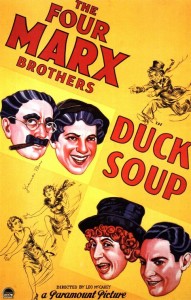
Synopsis:
A wealthy socialite (Margaret Dumont) with a crush on zany Rufus T. Firefly (Groucho Marx) insists that he be elected president of the troubled country of Freedonia; meanwhile, the ambassador (Louis Calhern) of Freedonia’s rival, Sylvania, enlists the help of two inept spies (Chico Marx and Harpo Marx) to gather critical information on Firefly, and soon war has erupted between the two countries.
|
|
Genres, Themes, Actors, and Directors:
- Leo McCarey Films
- Louis Calhern Films
- Marx Brothers
- Ruthless Leaders
- Satires and Spoofs
- Spies
Response to Peary’s Review:
It’s interesting but not surprising to learn that while made in the Marx Brothers’ “heyday”, Duck Soup was their “one critical and commercial flop of the period” — perhaps because “Depression Era audiences, who needed to believe in their leaders, were a bit unnerved seeing Groucho as the ruler of a country”. However, as Peary notes, “college audiences in the 1960s were looking for films that treated politicians with the disrespect they deserved”, thus leading this film to take its “rightful place in the comedy-film pantheon” (and turning it into a cult favorite). Peary, along with most other critics, refers to this as “the team’s masterpiece”, noting that it contains “70 delightful minutes of non-stop (no musical interludes or romance) sight gags, verbal wit, zany improvisations, and Groucho and Harpo offending everyone around them”, and further observing that “it is the only film that provided the team with the proper political milieu for their anarchic brand of humor”.
In his Cult Movies review, Peary argues that director Leo McCarey (who apparently balked at being given this assignment) “presents the Marx Brothers… at their most consistently rude and irreverent”, noting that their humor is “derived to a great extent from the cumulative effects that their unremitting insults (Groucho), puns (Groucho and Chico), invasions of privacy, destruction of property (Harpo), and general annoyances (Groucho, Chico, and Harpo) have on the pompous boors and wealthy hypocrites who populate their world”. Nicely said! Indeed, that description just about sums up their comedic arsenal perfectly. For more information about specific scenes in this zaniest of cinematic masterpieces — a still-potent example of unadulterated comedic anarchy — I humbly refer you to either Peary’s Cult Movies review, or any of the many fine analyses available online or in print.
Redeeming Qualities and Moments:
- Groucho Marx as Firefly (nominated by Peary as one of the best actors of the year in Alternate Oscars)
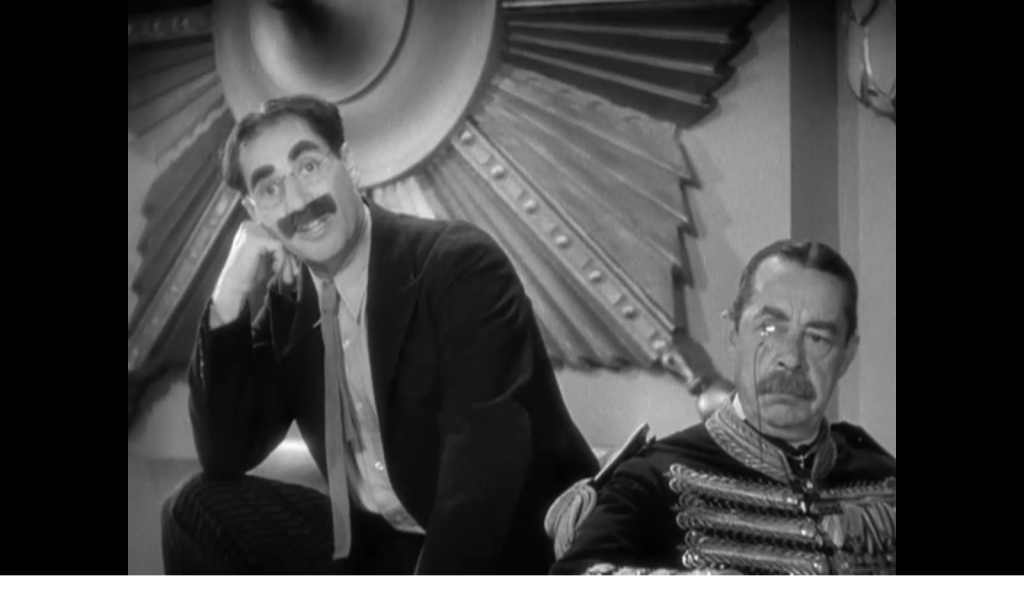
- Margaret Dumont at Mrs. Teasdale
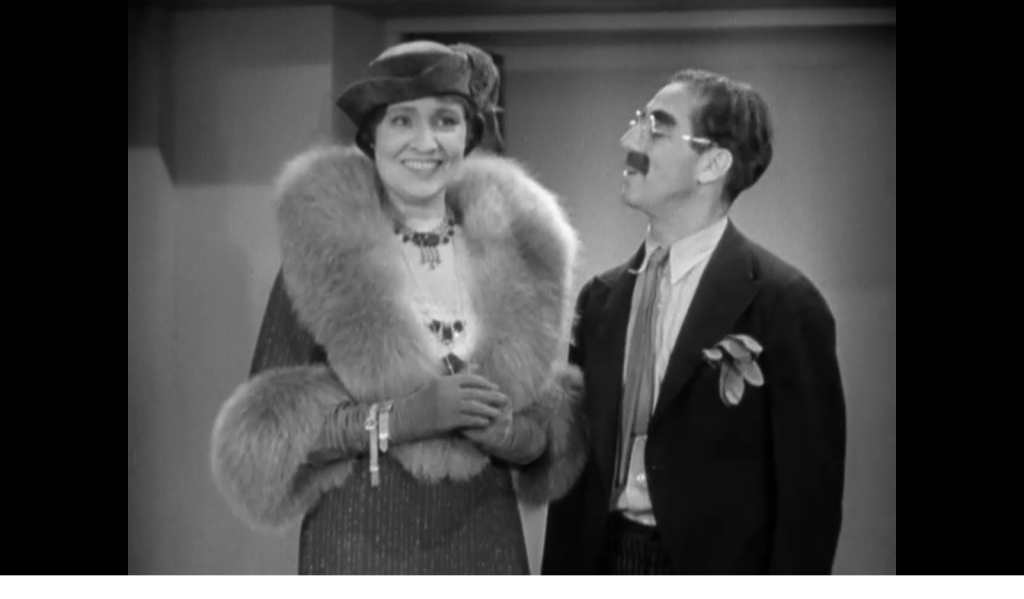
- Groucho and Chico’s non-stop verbal wit
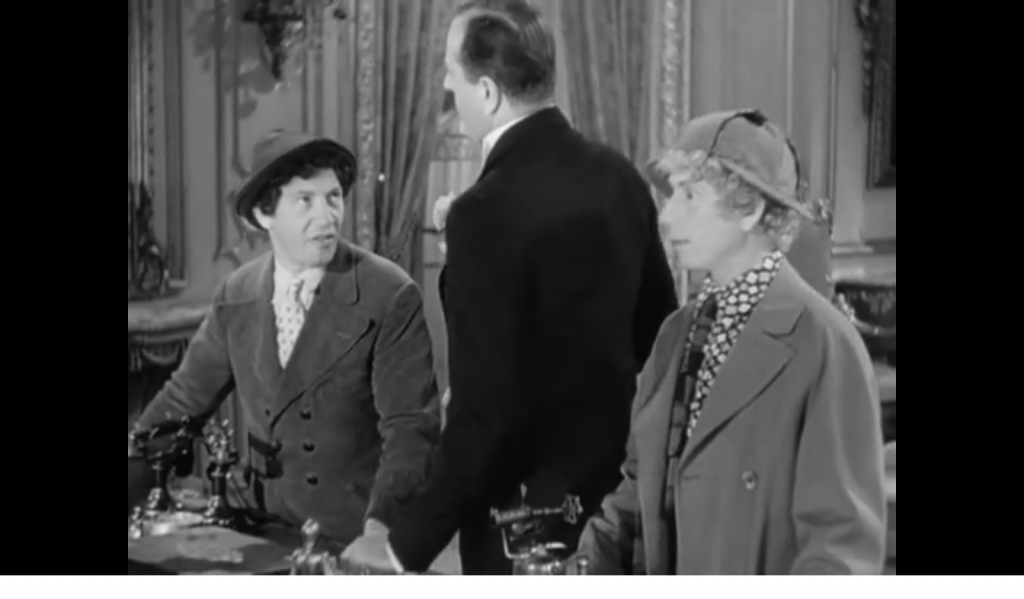
- A ruthlessly breakneck satire of countless cinematic tropes
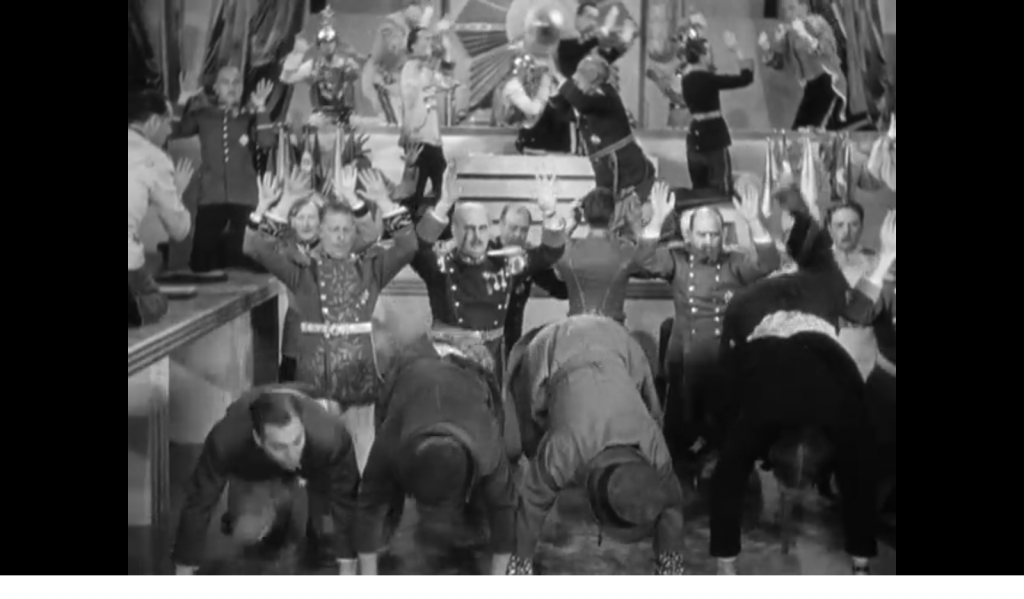
- The infamous, oft-imitated-but-never-equaled mirror scene
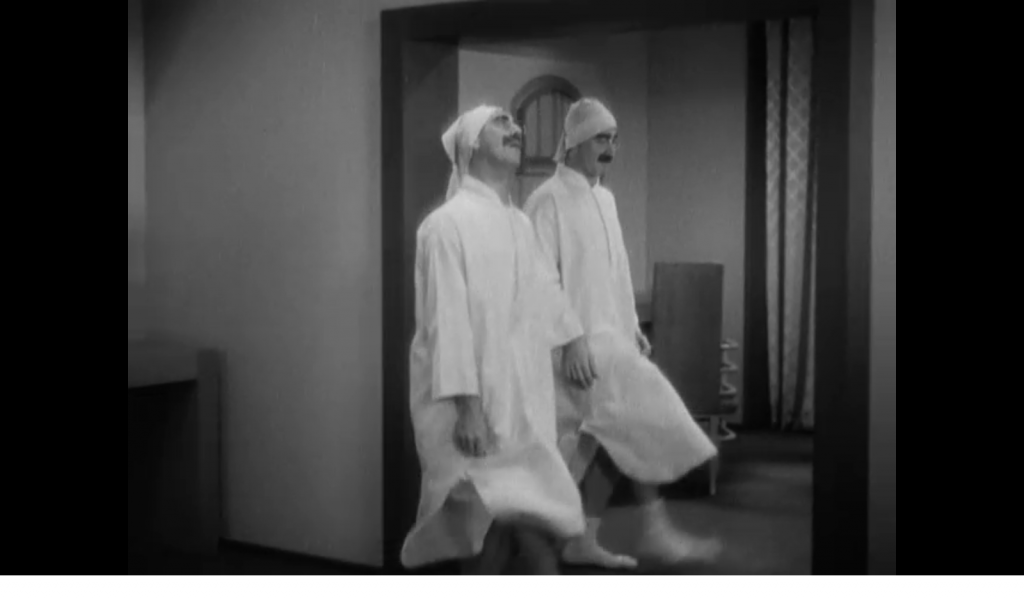
- A truly surreal screenplay
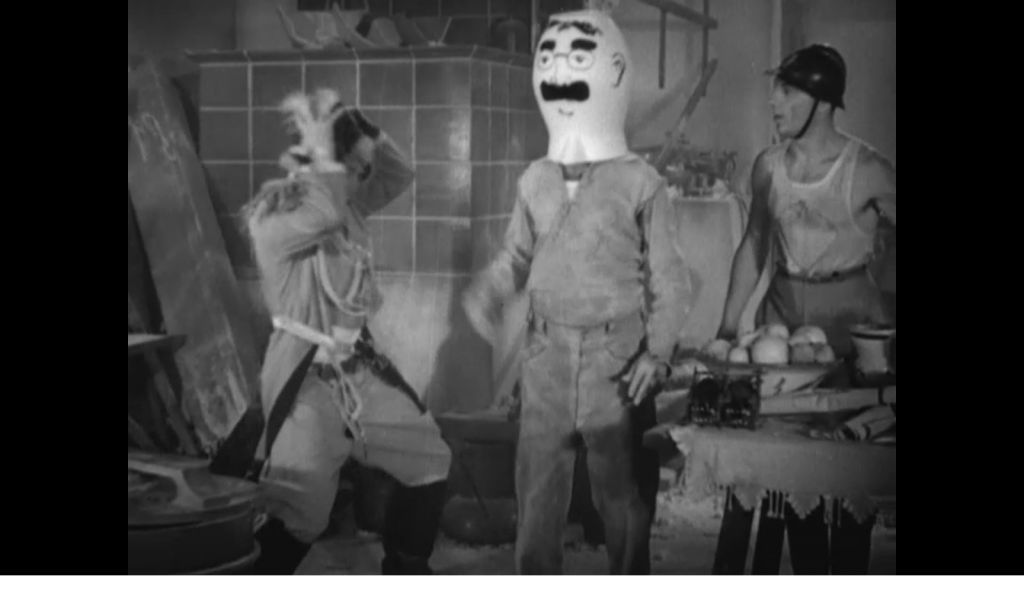
Must See?
Yes, as an undisputed comedy classic. Nominated by Peary as one of the best films of the year in his Alternate Oscars, and discussed at length in his first Cult Movies book.
Categories
- Cult Movie
- Genuine Classic
(Listed in 1001 Movies You Must See Before You Die)
Links:
|







3 thoughts on “Duck Soup (1933)”
A once-must as a comedy classic and for its place in cinema history.
I tend to have trouble remembering which Marx Brothers movie is which; it can be hard recalling the plots from the not-particularly-helpful (if playful) titles.
Having just rewatched it, though, ‘Duck Soup’ is not my favorite MB flick. For one thing, though I can generally do without an ‘obligatory’ romance (esp. if it’s lame), I love when Chico and Harpo have their musical interludes (on piano and harp) and those aren’t here. And, for me, I’m not recalling that ‘DS’ is among the boys’ funniest work. The first two-thirds are dependent on many a pun – and, if you feast on that kind of thing, you’ll enjoy the whole film, I suppose. But I think the film only really comes alive in the last 20+ minutes…with the adorable sequence with ‘the 3 Grouchos’, which leads to the justly famous mirror routine and, eventually, the raucous song about going to war.
The actual war section that serves as the pay-off is mildly disappointing after such a burst of near-finale energy.
The whole thing is certainly silly in the best sense of the word, so ‘DS’ does at least deserve a look.
Duck Soup isn’t my favorite Marx Brothers film, either — I believe that designation goes to “A Night at the Opera”. And I’ll agree it’s probably not among their funniest (at least, I didn’t laugh out loud all that often). I’m about to rewatch their other titles, and will be better able to make a comparison at that point. But there’s plenty of satirical brilliance here to admire, IMHO — it’s pretty much a no-holds-barred approach to the scenario, and the incredible war-finale had me agog with admiration simply at its sheer anarchic energy. On another note, this one definitely owes something to the previous year’s Million Dollar Legs with W.C. Fields.
1933’s Duck Soup Is My Favorite Comedy Film Of All Time, I Like The Mirror Scene.